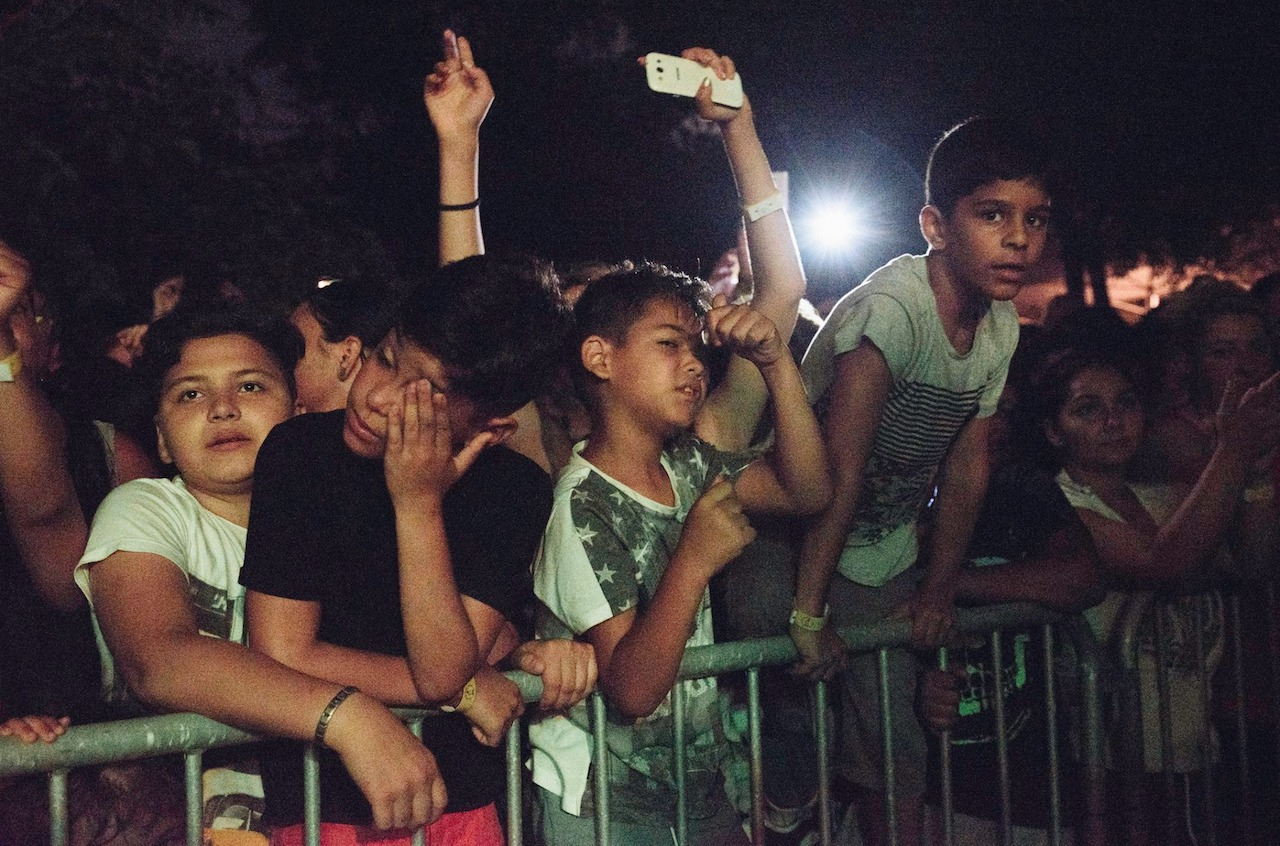- Bucharest is a city of sharp contrasts, where poverty and wealth rub shoulders and cars rule the streets. This continuous power struggle is framed by chaotic architecture, the result of a turbulent past featuring Ottoman occupation, devastating earthquakes, an inter-war obsession with copying the French and a megalomaniac Communist dictator (Nicolae Ceauşescu).
One of the most brutal developments of Ceauşescu's regime was the complete demolition of the Jewish Uranus-Antim neighborhood to make room for his palace, Casa Poporului. Few streets were spared. Gradina Uranus, an old fire station that's been converted into a summer garden, was one of a handful of buildings to survive the destruction. Surrounded by large, abandoned buildings, crumbling art deco villas and an all-night Romani flower market, it was the perfect setting for Outernational Days, an adventurous festival celebrating peripheral music.
In a country where minimal house is both a major industry and a cult, Dragos Rusu, the driving force behind online magazine The Attic, has long been fighting the corner of more challenging forms of music. He started as a booker for Control Club, where he invited diggers such as Sublime Frequencies cofounder Hisham Mayet and put on live shows by the likes of Praed and Terakaft. Last year, coinciding tour visits by Konono Nº1 and Baba Komandant spurred the idea of expanding the Outernational party series into a festival, with the help of Kran founder Andrei Craciun. Last year's first edition was a magical, messy, largely self-funded affair that showed massive potential. This year's event was backed by a large government grant, and the consensus over the three days was that it was starting to come into its own.
The suffocating Bucharest heat was just dying down on Friday evening as kids and parents sat in the sandy, tree-covered gardens. Crouching at the edge of the stage, Niger's Les Filles De Illighadad began an entrancing chant to the beat of an amplified, submerged rubber bowl, much to the confusion and fascination of the audience. A few minutes later, a guitarist suddenly appeared and the performance morphed into a wild Tuareg dance party. Everyone, from the lead singer to the audience, wore broad smiles as they got down with their hands in the air. Shamanelism, a socially engaged local electronic-manele project supporting former Roma inmates, was more intriguing than truly engaging, but it made for a good warm up for the upcoming club night.
Finders Keepers' Doug Shipton took the room from shy wandering around to energetic dancing with curveball hits like Roman Tam's "Lazerlight" and Baris K's catchy edit of Kamuran Akkor's "Ikimiz Bir Fidaniz." Babau followed with a solid performance in which whirlwinds of angular vocoder and vigorous drumming led into translucent dance anthems accompanied by a snake charmer's flute. But the true climax of the evening was Insanlar. Slowly unfolding as a storm roared outside, their hypnotic and deeply melancholic 90-minute set felt like a collective transformative experience—it wouldn't have mattered whether you were alone or surrounded by friends.
Saturday was more of a mixed bag. Interesting-sounding panel discussions fell flat and a new show from local electronic pioneer Mircea Florian ended up as a disappointment. Somehow, the pacing of the entire evening felt off. That said, Lebanon's Praed delivered arguably the most fun and invigorating live set of the festival, turning the outdoor stage into a massive Oriental party, the chubby vocalist belly-dancing joyously in a wig.
Later on at The Ark, Toresch stole the show. It's hard to go wrong when Tolouse Low Trax is involved, and Viktoria Wehrmeister's witchy presence and dark vocals were a treat. In true Romanian style, the party went on until the sun was burning, guided by Vladimir Ivkovic's impressive collection of exotic, ritualistic percussion tracks and local heroes Khidja.
Sunday was a celebration of diversity. Kenya's Ogoya Nengo & The Dodo Women's Group, who released on Honest Jon's in 2014, mesmerised with their traditional singing before Mark Ernestus' Ndagga Rhythm Force turned out the performance of the weekend, displaying incredible skill and showmanship. Close second was Florin Salam, an artist commonly considered the king of manele. He was a controversial booking given that the popular Roma party music is banned from radio and TV, and still bears a social stigma and rumours of mafia involvement, although it has recently been partially rehabilitated and promoted by local intellectuals and activists. This was an unusual setting for a performance of manele—the genre's singers usually make their living performing marathon sets at weddings. In the end it was deeply moving to see neighbourhood Romanis and hipsters singing along together in the front row, perfectly capturing the unifying spirit Outernational Days has always aimed for.
Photo credits /
Daniela Diaconu
Alex Negulescu
Didi Elena
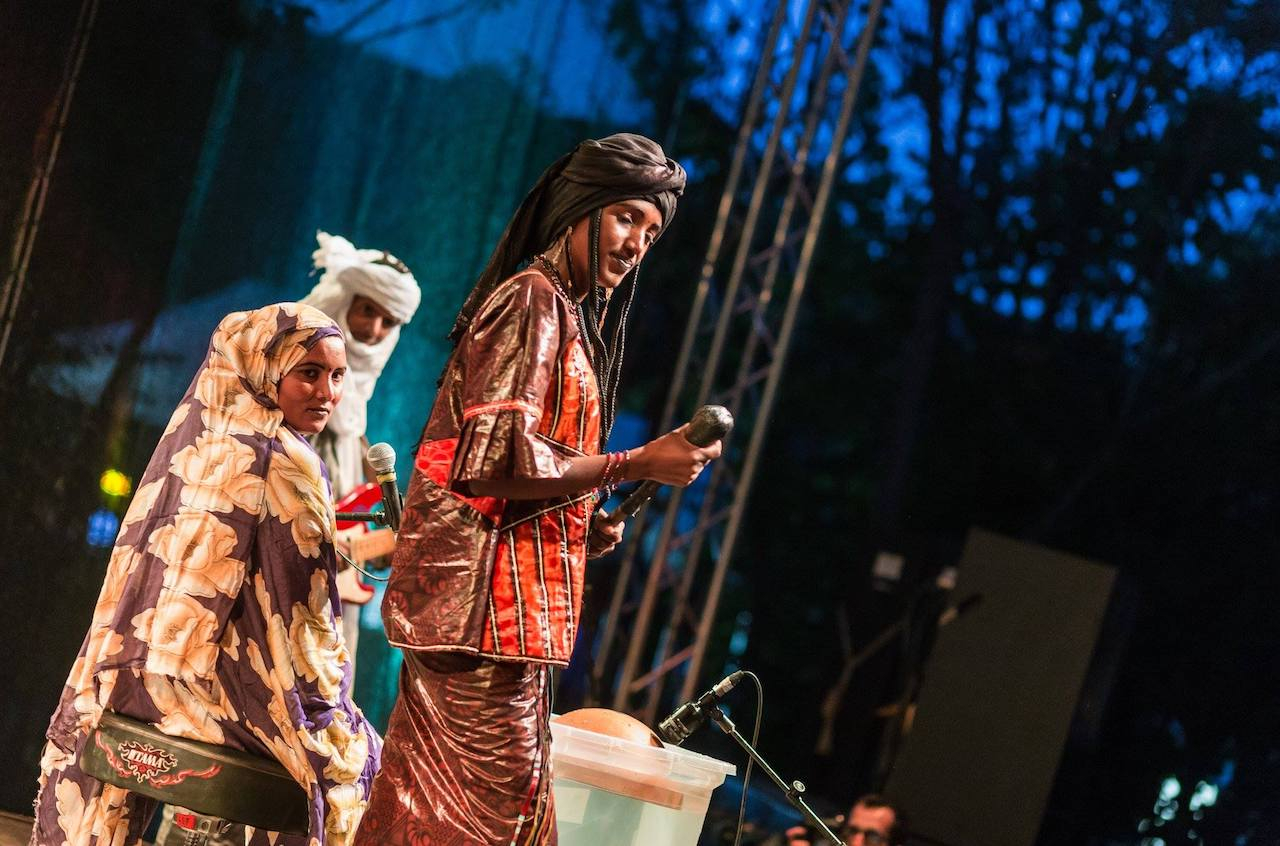 The suffocating Bucharest heat was just dying down on Friday evening as kids and parents sat in the sandy, tree-covered gardens. Crouching at the edge of the stage, Niger's Les Filles De Illighadad began an entrancing chant to the beat of an amplified, submerged rubber bowl, much to the confusion and fascination of the audience. A few minutes later, a guitarist suddenly appeared and the performance morphed into a wild Tuareg dance party. Everyone, from the lead singer to the audience, wore broad smiles as they got down with their hands in the air. Shamanelism, a socially engaged local electronic-manele project supporting former Roma inmates, was more intriguing than truly engaging, but it made for a good warm up for the upcoming club night. Finders Keepers' Doug Shipton took the room from shy wandering around to energetic dancing with curveball hits like Roman Tam's "Lazerlight" and Baris K's catchy edit of Kamuran Akkor's "Ikimiz Bir Fidaniz." Babau followed with a solid performance in which whirlwinds of angular vocoder and vigorous drumming led into translucent dance anthems accompanied by a snake charmer's flute. But the true climax of the evening was Insanlar. Slowly unfolding as a storm roared outside, their hypnotic and deeply melancholic 90-minute set felt like a collective transformative experience—it wouldn't have mattered whether you were alone or surrounded by friends.
The suffocating Bucharest heat was just dying down on Friday evening as kids and parents sat in the sandy, tree-covered gardens. Crouching at the edge of the stage, Niger's Les Filles De Illighadad began an entrancing chant to the beat of an amplified, submerged rubber bowl, much to the confusion and fascination of the audience. A few minutes later, a guitarist suddenly appeared and the performance morphed into a wild Tuareg dance party. Everyone, from the lead singer to the audience, wore broad smiles as they got down with their hands in the air. Shamanelism, a socially engaged local electronic-manele project supporting former Roma inmates, was more intriguing than truly engaging, but it made for a good warm up for the upcoming club night. Finders Keepers' Doug Shipton took the room from shy wandering around to energetic dancing with curveball hits like Roman Tam's "Lazerlight" and Baris K's catchy edit of Kamuran Akkor's "Ikimiz Bir Fidaniz." Babau followed with a solid performance in which whirlwinds of angular vocoder and vigorous drumming led into translucent dance anthems accompanied by a snake charmer's flute. But the true climax of the evening was Insanlar. Slowly unfolding as a storm roared outside, their hypnotic and deeply melancholic 90-minute set felt like a collective transformative experience—it wouldn't have mattered whether you were alone or surrounded by friends.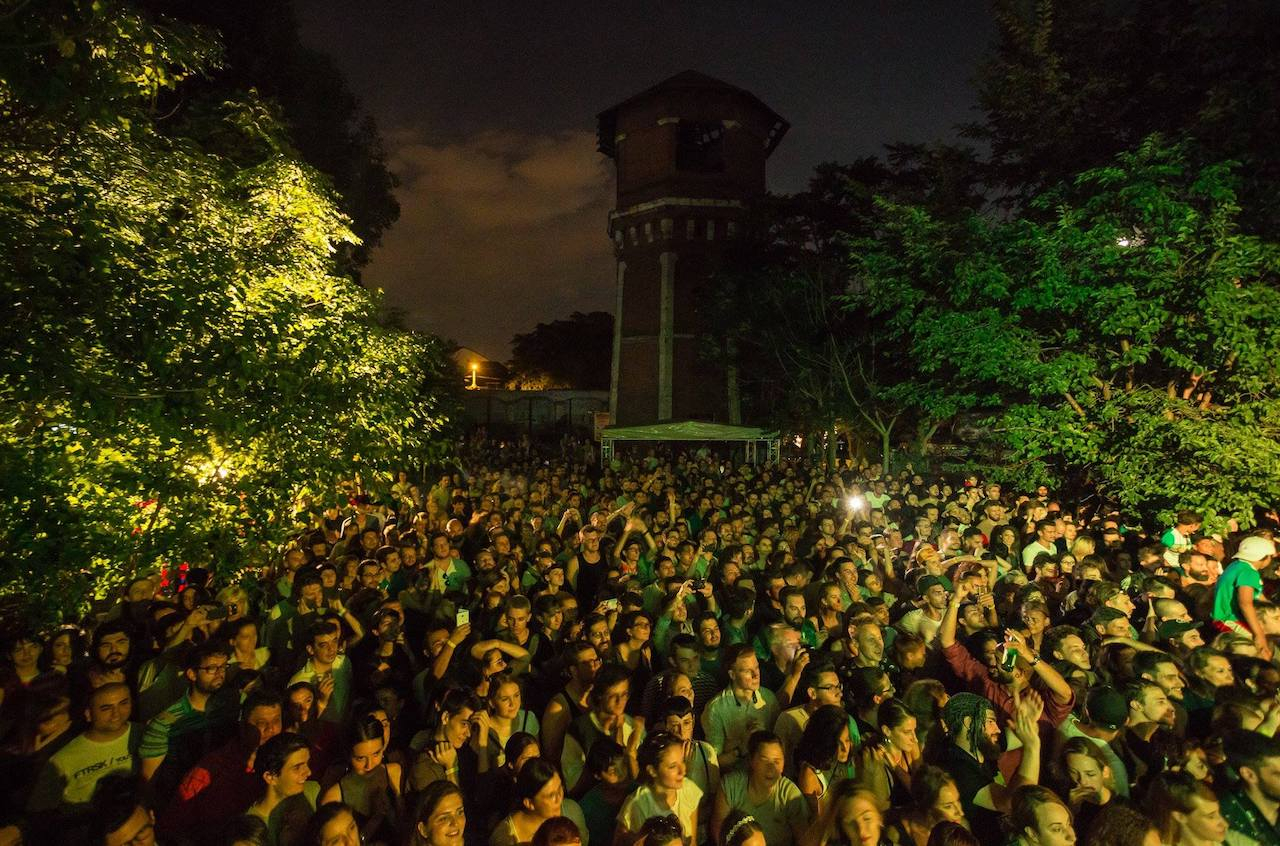
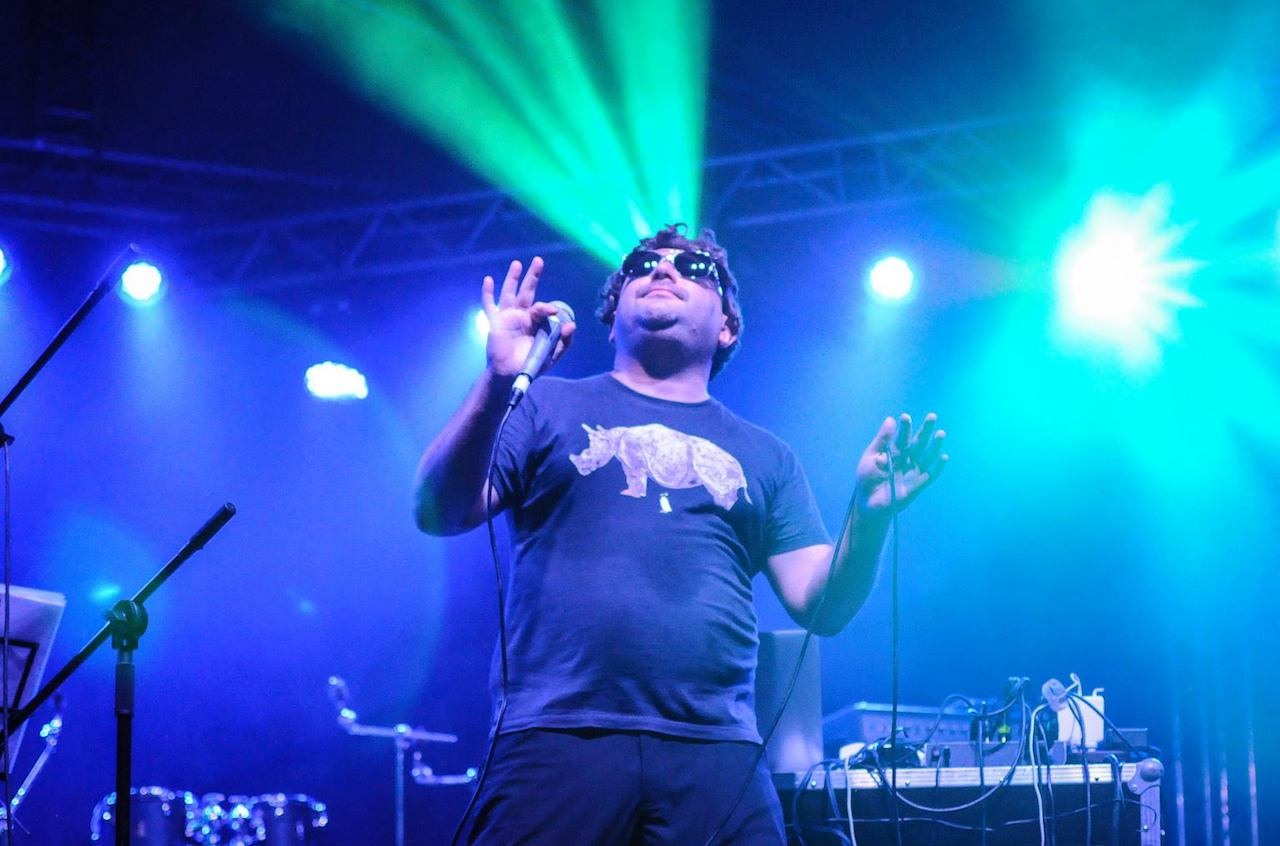 Saturday was more of a mixed bag. Interesting-sounding panel discussions fell flat and a new show from local electronic pioneer Mircea Florian ended up as a disappointment. Somehow, the pacing of the entire evening felt off. That said, Lebanon's Praed delivered arguably the most fun and invigorating live set of the festival, turning the outdoor stage into a massive Oriental party, the chubby vocalist belly-dancing joyously in a wig. Later on at The Ark, Toresch stole the show. It's hard to go wrong when Tolouse Low Trax is involved, and Viktoria Wehrmeister's witchy presence and dark vocals were a treat. In true Romanian style, the party went on until the sun was burning, guided by Vladimir Ivkovic's impressive collection of exotic, ritualistic percussion tracks and local heroes Khidja.
Saturday was more of a mixed bag. Interesting-sounding panel discussions fell flat and a new show from local electronic pioneer Mircea Florian ended up as a disappointment. Somehow, the pacing of the entire evening felt off. That said, Lebanon's Praed delivered arguably the most fun and invigorating live set of the festival, turning the outdoor stage into a massive Oriental party, the chubby vocalist belly-dancing joyously in a wig. Later on at The Ark, Toresch stole the show. It's hard to go wrong when Tolouse Low Trax is involved, and Viktoria Wehrmeister's witchy presence and dark vocals were a treat. In true Romanian style, the party went on until the sun was burning, guided by Vladimir Ivkovic's impressive collection of exotic, ritualistic percussion tracks and local heroes Khidja.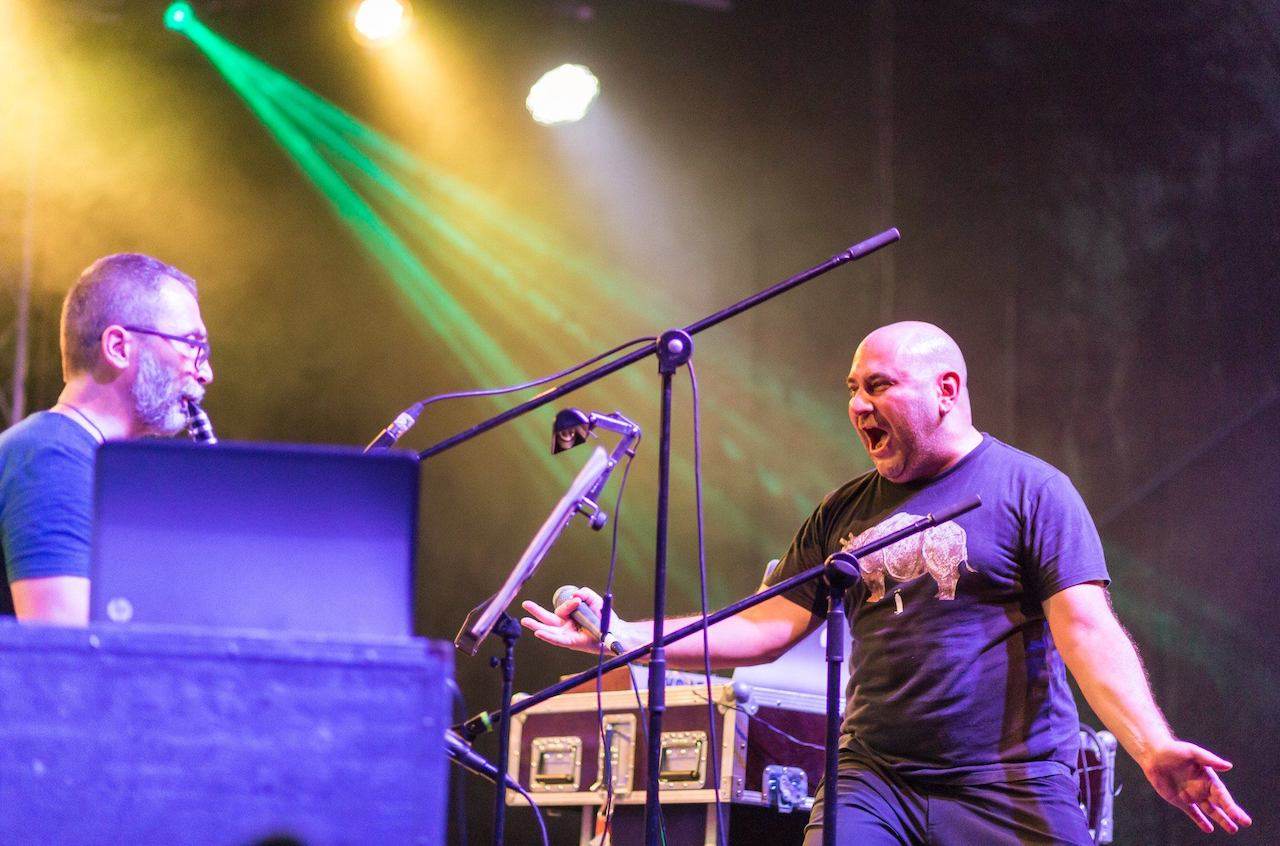
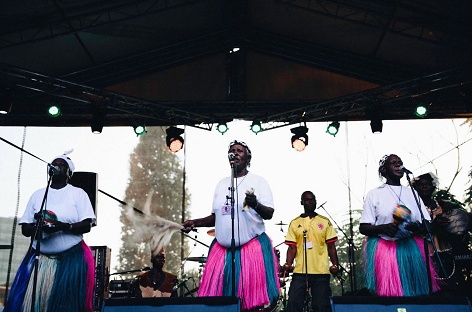 Sunday was a celebration of diversity. Kenya's Ogoya Nengo & The Dodo Women's Group, who released on Honest Jon's in 2014, mesmerised with their traditional singing before Mark Ernestus' Ndagga Rhythm Force turned out the performance of the weekend, displaying incredible skill and showmanship. Close second was Florin Salam, an artist commonly considered the king of manele. He was a controversial booking given that the popular Roma party music is banned from radio and TV, and still bears a social stigma and rumours of mafia involvement, although it has recently been partially rehabilitated and promoted by local intellectuals and activists. This was an unusual setting for a performance of manele—the genre's singers usually make their living performing marathon sets at weddings. In the end it was deeply moving to see neighbourhood Romanis and hipsters singing along together in the front row, perfectly capturing the unifying spirit Outernational Days has always aimed for. Photo credits / Daniela Diaconu Alex Negulescu Didi Elena
Sunday was a celebration of diversity. Kenya's Ogoya Nengo & The Dodo Women's Group, who released on Honest Jon's in 2014, mesmerised with their traditional singing before Mark Ernestus' Ndagga Rhythm Force turned out the performance of the weekend, displaying incredible skill and showmanship. Close second was Florin Salam, an artist commonly considered the king of manele. He was a controversial booking given that the popular Roma party music is banned from radio and TV, and still bears a social stigma and rumours of mafia involvement, although it has recently been partially rehabilitated and promoted by local intellectuals and activists. This was an unusual setting for a performance of manele—the genre's singers usually make their living performing marathon sets at weddings. In the end it was deeply moving to see neighbourhood Romanis and hipsters singing along together in the front row, perfectly capturing the unifying spirit Outernational Days has always aimed for. Photo credits / Daniela Diaconu Alex Negulescu Didi Elena